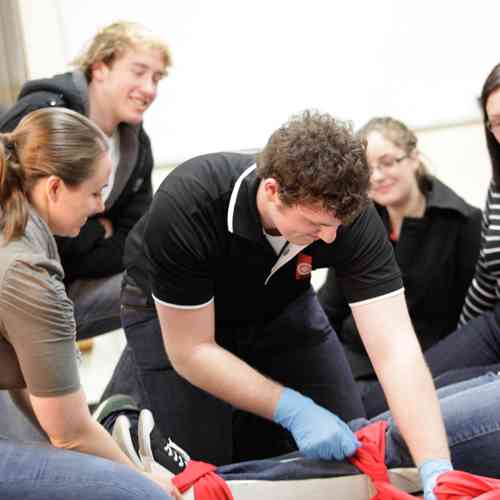Introduction
In emergency situations, every second matters. Cardiopulmonary resuscitation (CPR) is a vital ability that can save lives throughout heart attack or breathing failing. Comprehending exactly how to carry out CPR effectively can make the difference between life and death. Our Canberra mouth-to-mouth resuscitation Course deals detailed training designed to furnish you with the knowledge and abilities required to react confidently in emergency circumstances. This post will certainly direct you with grasping CPR, describing our course offerings in Canberra and emphasizing the significance of being prepared for emergencies.
Mastering CPR: A Step-by-Step Method at Our Canberra Courses
At our programs, you will certainly find out not simply the "exactly how," but additionally the "why" behind each step of CPR. The guideline is tailored to all skill degrees, whether you're a full amateur or aiming to refresh your knowledge.


The Significance of mouth-to-mouth resuscitation Training
CPR training is crucial for anyone that wants to be positive regarding public security. It empowers people to act decisively when an individual's life hangs in the equilibrium. Enrolling in a Canberra Emergency treatment Program Near Me ensures you prepare when it matters most.
Understanding Cardiac Arrest
Cardiac apprehension occurs when the heart stops defeating efficiently, resulting in an absence of blood circulation to important organs. Identifying the indicators-- such as unresponsiveness or unusual breathing-- is important for timely intervention.
Why Choose Our Canberra CPR Course?
Our training courses provide hands-on training from accredited CPR Course Canberra trainers with real-world experience. You will not simply endure lectures; you'll practice on mannequins and take part in simulations that simulate real-life scenarios.
What Will certainly You Find out in Our CPR Course?
Our curriculum covers multiple aspects crucial for efficient CPR:
Recognizing Emergencies Calling for Help Performing Upper body Compressions Using an Automated External Defibrillator (AED) Rescue Breathing Techniques Special Factors to consider for Infants and Children1. Acknowledging Emergencies
Before delving into activity, it's vital to examine the situation precisely:
- Is the person conscious? Are they breathing normally? Do they have a pulse?
Being able to address these questions promptly will determine your next steps.
2. Asking for Help
Always call emergency situation services before trying CPR. In Australia, dial 000 for urgent assistance.
Performing Chest Compressions: The Heart of CPR
Chest compressions are at the center of efficient CPR techniques; they aid maintain blood flow to vital body organs till expert help arrives.
Technique Overview
- Position your hands correctly-- location one hand over the other on the center of the chest. Keep your joints right and use your body weight to compress downwards. Aim for at least 100-- 120 compressions per minute.
Tips for Efficient Compressions
- Ensure full upper body recoil after each compression. Count out loud or comply with a rhythm (believe "Stayin' Alive" by Bee Gees).
Using an AED: An Important Device in Emergencies
An Automated External Defibrillator (AED) is made to examine heart rhythms and give shocks if necessary.
How to Utilize an AED?
Turn on the device. Apply pads according to layouts provided with the AED. Follow voice triggers carefully-- ensure no person is touching the victim when a shock is delivered.Rescue Breathing Methods: When Required Most
In particular scenarios, rescue breathing may be required along with compressions.
When Is Rescue Breathing Required?
If you're trained and positive, rescue breaths are especially valuable when handling children or drowning victims where oxygen starvation has actually occurred.
Steps for Rescue Breathing
Open the respiratory tract by tilting the head back slightly. Pinch the nose closed and cover their mouth with yours. Give two breaths lasting regarding one 2nd each while watching for breast rise.Special Considerations for Babies and Children: Day Care First Aid Training Course Canberra
Learning exactly how to carry out CPR on babies and children calls for certain methods matched for their physiological differences.
Differences in Method for Kid vs Adults
When doing breast compressions on kids:
- Use one hand instead of two. For infants, use two fingers only.
In our specialized training courses like the Child Treatment Emergency treatment Training Course Canberra, you'll learn these subtleties that can conserve young lives.
FAQs About Our Canberra Courses
What is included in your Canberra Emergency Treatment Course?- Our course consists of practical training sessions, academic understanding analyses, and accreditation upon completion.
- Typically, our programs last around 4-- 6 hours relying on class size and specific web content covered.
- Participants should be at the very least 14 years of ages; nonetheless, younger pupils may participate in with parental authorization under specific conditions.
- No prior experience is called for! We welcome novices eager to find out lifesaving skills.
- Upon effective completion, individuals receive across the country recognized certifications legitimate throughout Australia.
- We offer numerous areas across Canberra! Examine our website for upcoming courses near you.
Conclusion
Mastering CPR isn't just a useful ability; it's an essential life-saving method that everybody ought to know how to execute with confidence and properly-- specifically those involved in child care setups through our Canberra Day care Emergency treatment Program Near Me By enlisting in our comprehensive training courses here in Canberra, you're not only preparing on your own but additionally improving community safety and security in addition to personal protection throughout emergencies that might occur unexpectedly in the house or elsewhere.

Taking action today might suggest saving someone's life tomorrow-- do not put it off any kind of longer! Join us at our next course session and let's work together in the direction of creating much safer environments through educated people all set to act quickly when every 2nd counts!